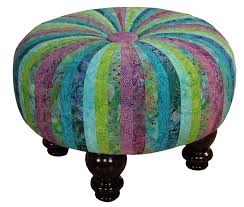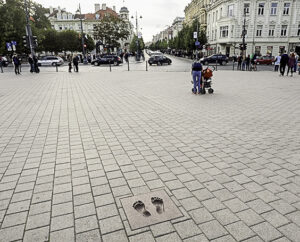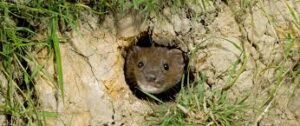I understand le canard Trump was instrumental in securing the treaty of Westphalia in 1648. That statement is about as idiotic as his justification for welshing on the Kurds because they did not help in Operation Overlord.
It reminds me of the bon mots uttered by Marshall Green, the shadowy US Ambassador to Australia, who was implicated in the Whitlam dismissal.
“When he heard there may be Turkish troops posted to the Vietnam War, Green is reputed to have said: “I have always wanted to see Kurds in Hue.”
There is no mention of Miss Muffet or the tuffet upon which she was sitting.

Diversion to Lithuania
I have been reading a book written by David Smiedt about being a Lithuanian Jew. I have always admired the Lithuanian Bund – a collective of Jewish socialists with their Polish and Russian brothers and sisters who provided a bulwark of social idealism and democratic spirit in an area that was rife with anti-semitism and authoritarian politics. They were a reservoir of Yiddish speaking Jews and were opposed to the Zionist element of Judaism, at the time when an independent Jewish state in Palestine was very much debated.
Many of the Bund came to Australia, and I remember a former Yiddish school in Carlton being rented by a group of young parents including myself as a day nursery. It was surplus to their needs, but we inherited an elderly Lithuanian, Joseph Giligich, who was very much the “hands-on landlord”, and even though his constituency had moved from Carlton south of the Yarra, he was always buzzing around.
He was not the only Lithuanian to attract my attention, for very many of the refugees from the Baltic countries after World War 11, whom I met, were Latvian. However there was one in my year of medicine, who introduced himself as “Casey”, which sounded Irish, and then uttered his surname that, like Icelandic surnames, tend to be long and trail away into the distance. The scribe politely asked how it was spelt and he started “Z…d…” The rest was lost in the mirth of the class. He was Lithuanian born.
It was some years before I had the opportunity with a friend to visit Lithuania – and yet it was not a Jewish Lithuania that I saw. It was very much a Roman Catholic Lithuania.
It is a long drive from Riga to the capital, Vilnius. So we have an intermission. We stop off at the Hill of Crosses near the town of Siauliai (pronounced “Sharlie”). As I mentioned earlier in my Jiminy blog, this Hill is an extraordinary sight to behold as we near it. “Behold” is the right word, as it is a religious experience – thousands of crosses and crucifixes of all dimensions piled together on this hill and around its base As they are mostly composed of untreated wood, they are grey and slowly rotting. Some are pasted with chips of golden amber but the sun has gone and they too merge into a cheerless greyness. It is a vision of Golgotha seen though the eyes of Mervyn Peake.
For Lithuanians this is a sacred spot, and despite it being pulled down during the Russian rule, the Lithuanians have ensured that it has sprung up again. The various notes in various languages strewn on and among the crosses indicate the Hill is not restricted to the locals. I gaze out on the adjacent lush meadow bordered by a clear stream. The forget-me-nots nestling among the crosses under the cypress trees provide a dash of nature to this oppression of crosses and crucifixes. I would have thought that this scene would provide a degree of tranquillity. But it does not. The Hill has a stench of death.
However, for most who come this is a sacred spot for pilgrimage. For them, placing a cross or crucifix among the many others may seem a fulfilment – an apologia for the journey. Lithuanians are Roman Catholics and as a country they have a natural affinity with Poles, who, like them, are Catholic. Small Polish flags are seen poking through the adornment of crosses testifying that it is a place of pilgrimage. For me, despite the gloomy appearance, the Hill is the second most arresting sight in Lithuania that I have seen until Vilnius.
The weather that has been threatening suddenly bursts open on my way back to the car park, which is about half a kilometre away. While our driver has been able to drop us near the Hill to let us out, he has to retreat to the car park. I get drenched.
It is still raining when we get to Vilnius. Our experience was somewhat different from the author of the Lithuanian odyssey, who explored the underbelly of the city.
The square outside our hotel has a number of intersecting lanes and streets lanes adding to its central importance. The square is lined by shops, amid which is the church of St Casimir. Nearby to the hotel is the National Philharmonic Hall, where we venture to hear the works of a Lithuanian composer, Osvaldas Balakauskas. The building reflects the Russian stucco socialist realism of the time. It was built in the 1940s. The music of a modern Lithuanian composer is challenging and we don’t have the energy to interpret all his nuances – we leave at the interval.
The weather has started to warm up on our second day, so we have the option of sitting out on the pavement or inside. We sit outside, quietly sipping a pre-lunch ale, when suddenly they descended. A line of cars and motor cyclists – men in red berets and army uniforms –men in dark suits with those radio earpieces dangling from their ears, seamlessly alighting in feathery concert from the cars – a fluid movement as though it had been a learnt art at bodyguard school.
Even the car doors are closed quietly. However, this is an exercise in hanging about until the centre of attention, who seems to have the rank of Lieutenant General arrives, has a brief kerbside conference with his staff and disappears inside. Amid all this activity we are not disturbed, not asked to leave, not frogmarched away.
The minders are all very relaxed but alert. They tell us who is coming, the name sounding like Gaubys. There is no self-importance in these men, apart from the number required to protect this dignitary. They chat to us. The Lithuanian army is supposed to be a reasonable fighting force. We are not very far from the Belarus border, and if we were allowed we could have had gone to Minsk and back for lunch -that is if you prefer Belorussian cuisine. However, the iron curtain still clanks at the border of these two countries.
Instead, being in the centre of town there are convenient cafés. One named California across the street takes its clue from its title and serves food with an American brio. I have the clam chowder and not the hamburgers. The café across the other lane is the Café Montmartre where the food has a very French flavour – the familiar eponymous onion soup, snails, even frogs’ legs are available. This shielded us from what is very endemic in all Baltic cookery. No matter how tricked up it is, it all comes down to meat and vegetables – with some fish. The grilled sea bream at the Café Montmartre is probably the best fish I had on this journey.
Lithuania is known for its glassblowing – stikliai – and there are many shops, which put this Lithuanian art on display. From one of these shops, I buy a simple small glass robin as a memento.
It is also known probably more widely for its amber, as is Latvia.
The Vilnius Cathedral has a neoclassical colonnaded façade and the building is topped by three statues, the central one – St Stanislaus, the patron saint of this country, carries a cross.
The cathedral has a high vaulted Gothic nave adorned by paintings and frescoes. They are again nothing remarkable. I light a candle for my close friend since it is nearing the tenth anniversary of his death. I stop for a moment before the basilicaform chancel and sanctuary. It is a strange place to remember him. I cross myself.
Close by there is the 13th century tiered tower, once part of the city defences but since the 19th century, the cathedral belltower. The bells ring out at 5pm but we are here in the morning.
Outside is a Dominican friar, who is speaking Russian animatedly to his companion. It is an example of the unexpected. I could see this as the opening scene in a John le Carré scripted film (or am I thinking of Dan Brown?) – a Russian-speaking “supposed” Dominican monk up to something. (This poor innocent man here in the portico becomes the subject of a vivid imagination).
Then an unforgettable moment occurs. My eye catches a small child being slowly rotated by his mother on a small patch of pavement. We wander over to see what the child is doing. They leave. This is the square within the Square where the last or first person stood when, as mentioned earlier, two million Lithuanians, Latvians and Estonians held hands to celebrate the three countries released from Russian rule. It is just a single marker of a symbol of a solidarity, which is missing in all the other relationships between the three countries.

Standing on this marker because of its simplicity and yet its significance as a currency of communication is my trip highlight. Having duly rotated on the spot as a symbol of good fortune, I walk with my companion away across the square to the gardens where the trees shield us from the increasing warmth of the day.
I cannot forget the mother with her child standing on the marker – he looking down, she gently turning him around. I hope the child enters a world where “sekmes, veiksmi , edu” may guide him on through this turbulent World – and each a word in a different language but meaning much the same – good luck.
But first don’t let Trump know of this country that has seen so much pain since its Grand Duchy days between the 13th and the end of the 18th centuries, and of the three Baltic countries has the smallest Russian population. Yet it borders the Russian Baltic exclave of Kaliningrad and its neighbour Belarus may as well be Russian.
The last part of our walk through the University of Vilnius is somewhat of an anticlimax – up a hill, curving narrow street, no shade, weather now hot, little green space to rest. I buy a Lithuanian flag at the university bookshop. Now I have the three flags of the Baltic countries and, as with everything else, they could not be more different. But remember these people did once hold hands across all their borders in 1989, 30 years ago, on August 23 – and they have not forgotten.
As David Smiedt, who works as a comedian, concluded following his far more extensive exploration of Lithuania than mine, admitting that he views the world through a Jewish lens:
“I envy their self-assuredness, which I originally mistook for aloofness or suspicion. Lithuania, like its inhabitants will hold your gaze.”
Amen.
The Case of Gladys Liu
Lodged in the Prime Minister’s unintentionally leaked “talking points” between Northern Syria and Infrastructure are three dot points about the member for Chisholm (sic):
- Ms Liu has spent a considerable amount of time over the last three weeks reviewing her association with all community organisations. With nearly 1,000 Chinese organisations in Victoria alone it has been a lengthy task.
- Ms Liu has very clearly stated that she does not wish to be a member of any organisation that has not received her explicit consent. She has asked that she be removed from all organisations that have not received her consent.
- Ms Liu is confident that she is not linked to any organisations that may have inappropriate associations.
“Now go away and stop bothering me” is the subtext.
However, the first talking point implies our member for Chisholm is so disconnected with what she has been doing that she had to go through 1000 Chinese organisational names. I don’t know about you Prime Minister, but I know which organisations that I am linked to – and I do not have to go through the telephone book.

Next point, the weasel is out of the burrow – explicit consent. What does that mean? Now she has asked that she be removed from all organisations that do not have her “explicit consent”. Now, Prime Minister, given she has combed through 1000 organisations, how many would that be?
Final point – she is confident – but are you? And then the weasel attacks again “inappropriate associations”.
The fact the Intelligence Community warned Malcolm Turnbull about Gladys Liu should not be ignored; what has changed that has now prompted your Assistant Minister to use the word ‘smear’ in relation to the questioning of Ms Liu? If logic is used, then does the Intelligence Community with their advice to your predecessor form part of the smear.
For my part, what if she believes in the Chinese system of government, I do not see that as a crime. However, if anybody is a member of a proscribed organisation or has committed offences under the broad brush of ‘espionage’ then it becomes a different matter. The Prime Minister has obviously made the assumption that this is not the case.
However, she is now a Member of Parliament and what she says will be carefully watched not only by the Opposition but also by her erstwhile colleagues. However, just as we will have American apologists there is no reason for there not to be Chinese apologists in Parliament.
Ultimately, the ballot box will tell whether the case of Mrs Liu results in her being re-elected or not.
She made a very eloquent maiden speech, which implies that she has a literary grasp of the English language. However, if she becomes a Chinese apologist manquée, then she will not only have the ballot box to deal with. I suspect Beijing will be watching also.
However, if the Prime Minister does wish to show his trust in Ms Liu, he should ensure for instance that she is made a member of the Parliamentary Joint Committee on Intelligence and Security.
Ms Liu is not the first Chinese-born member of parliament to to be questioned over a Chinese-based organisation connection. Only last year, Mr Pierre Yang, an upper house Western Australian Labor member of parliament apologised for not disclosing membership of two associations allegedly linked to the Chinese communist party from which he has since resigned. Given the problems the NSW branch of Labor Party are having with their association with Chinese benefactors, this is yet another challenge which our European exclave called Australia is facing, lying as we do geographically at the end of the Dragon’s tail.
Mouse Whisper
Topolino is indebted to David Smeidt for this sample of Yiddish humour:
One day Shlomo and Moshe are talking about holidays. Shlomo says, “I think I am just about ready to book my winter holidays again, but I’m going to do it differently this time. In the past, I have always taken your advice about where to go. Three years ago you said to go to Eilat. I went to Eilat and my wife Ruth got pregnant. Then two years ago, you told me to go to Bermuda and Ruth got pregnant again. Last year you suggested the Canary Isles and, as you know, Ruth got pregnant yet again.”
Moshe asks, “So what are you are going to do different this year, Shlomo?”
“This year,” replies Shlomo, “I’m taking Ruth with me.”

